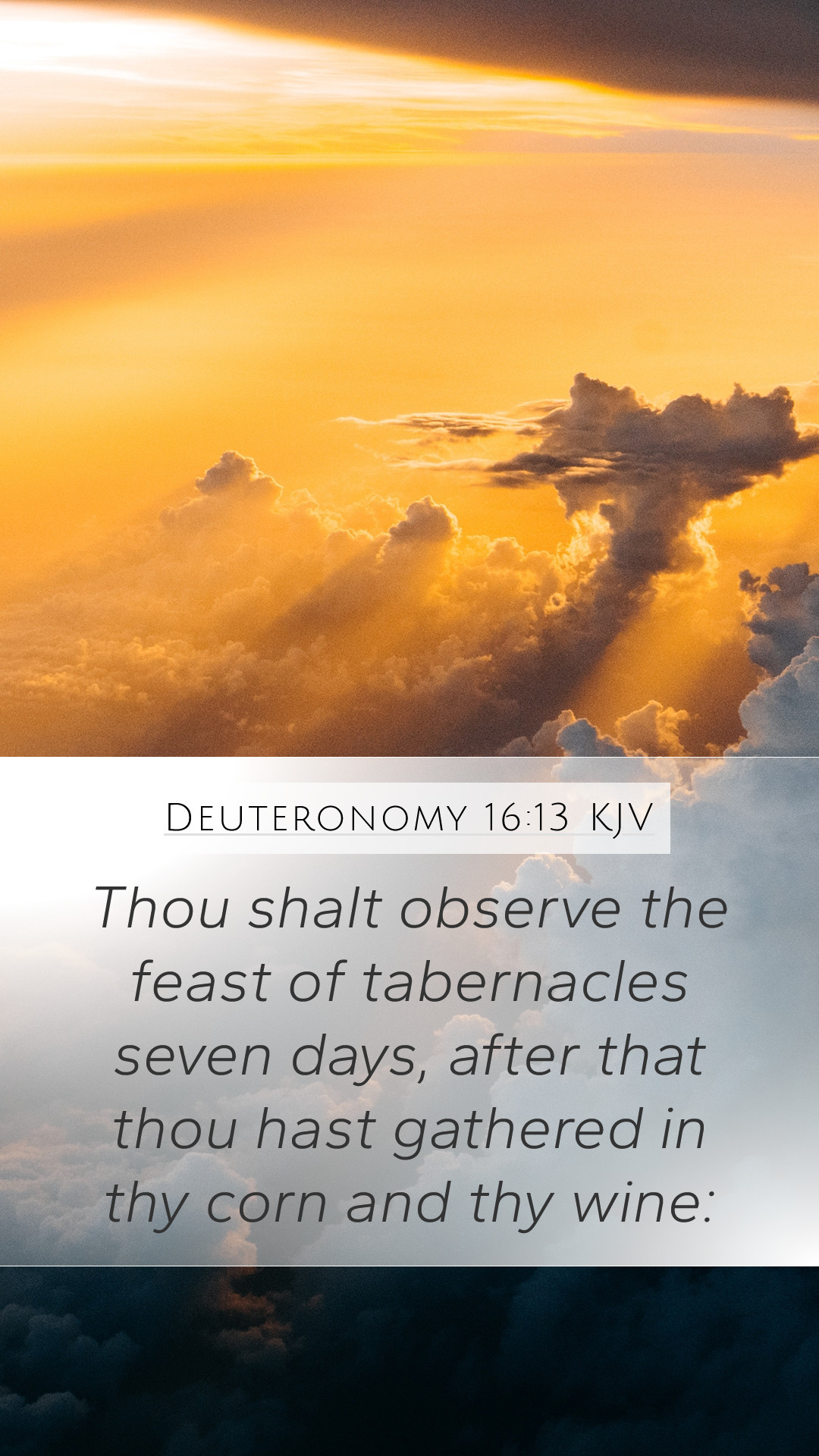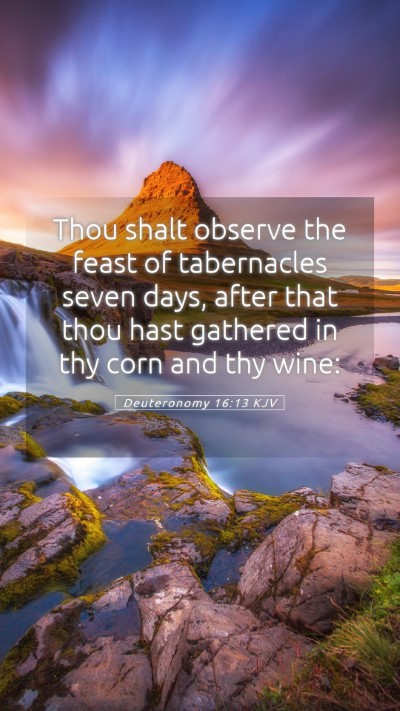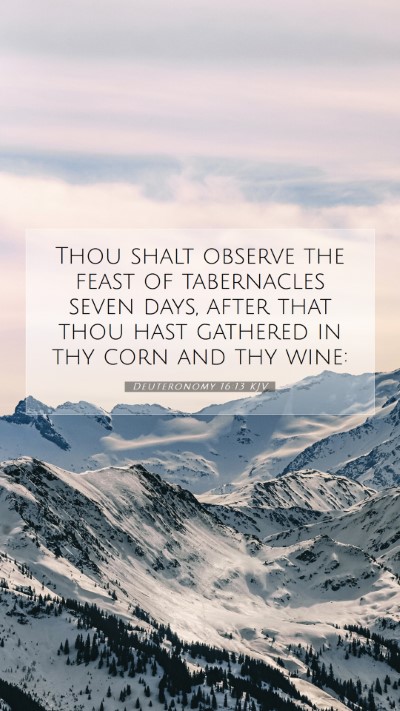Understanding Deuteronomy 16:13
Deuteronomy 16:13 states: "Thou shalt observe the feast of tabernacles seven days, after that thou hast gathered in thy corn and thy wine." This verse emphasizes the importance of the Feast of Tabernacles, a significant celebration in the Jewish tradition, which occurs following the harvest.
Bible Verse Meanings & Explanations
Understanding the meaning of this verse requires delving into the historical and cultural context of the Israelites. Here we explore insights from renowned public domain commentaries:
Commentary Insights
-
Matthew Henry:
Henry highlights that the Feast of Tabernacles is a time of joyous celebration that acknowledges God's provision during the harvest. It is also a reflection of the Israelites' journey through the wilderness, living in booths to remember their dependence on God.
-
Albert Barnes:
Barnes interprets this verse as a call for the Israelites to remember their blessings and to dedicate time for joy and thanksgiving after their labors. This feast serves as a reminder of both their agricultural abundance and God's faithfulness throughout their history.
-
Adam Clarke:
Clarke emphasizes the social aspect of the Feast of Tabernacles, indicating that this festival was not just an individual celebration but a communal one, where all families gathered, reinforcing unity and gratitude within the community.
Scripture Analysis
The instructions in Deuteronomy 16:13 can be understood within the larger framework of the biblical festivals. These events serve multiple purposes:
- Commemoration: Reminds the people of their historical journey and dependence on God.
- Thanksgiving: Offers a time to express gratitude for the harvest and God's provision.
- Community: Encourages unity among the people through collective worship and celebration.
Significance of the Feast
The significance of the Feast of Tabernacles extends beyond its agricultural roots. It represents:
- God's faithfulness: Celebrating how God sustained the Israelites during the desert wanderings.
- Anticipation of future harvests: It signifies trust in God's provision for the future.
- Foreshadowing of Christ: Some interpret the festival as a type pointing towards Jesus' incarnation, as He 'tabernacled' among us (John 1:14).
Application of the Verse to Daily Life
We can draw valuable lessons from Deuteronomy 16:13 for our own lives today:
- Celebrating God's blessings: Taking time to acknowledge and celebrate the blessings we receive.
- Community Gratitude: Engaging with our families and communities in expressions of thankfulness.
- Remembering History: Reflecting on our personal journeys and recognizing how God has guided us.
Cross References
This verse can be cross-referenced with other relevant scriptures:
- Leviticus 23:34-43: Outlines the instructions for observing the Feast of Tabernacles.
- John 7:2: Refers to the Jews’ practice of celebrating the feast during Jesus' time.
- Exodus 23:16: Discusses the agricultural festivals the Israelites were to observe.
Conclusion
The insights gained from Deuteronomy 16:13 not only enrich our Bible study insights but also encourage deeper Bible verse interpretations. By understanding the context, significance, and practical applications of this verse, we enhance our Bible verse understanding and develop a more profound appreciation for God's word.


